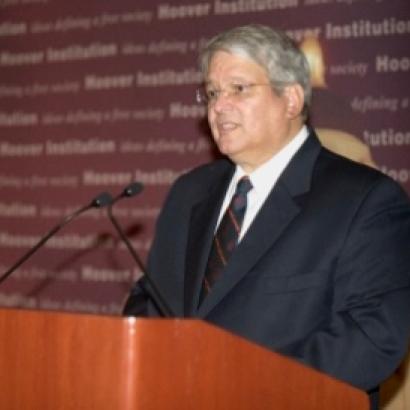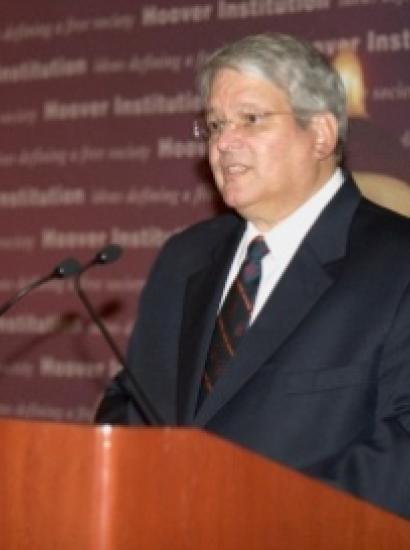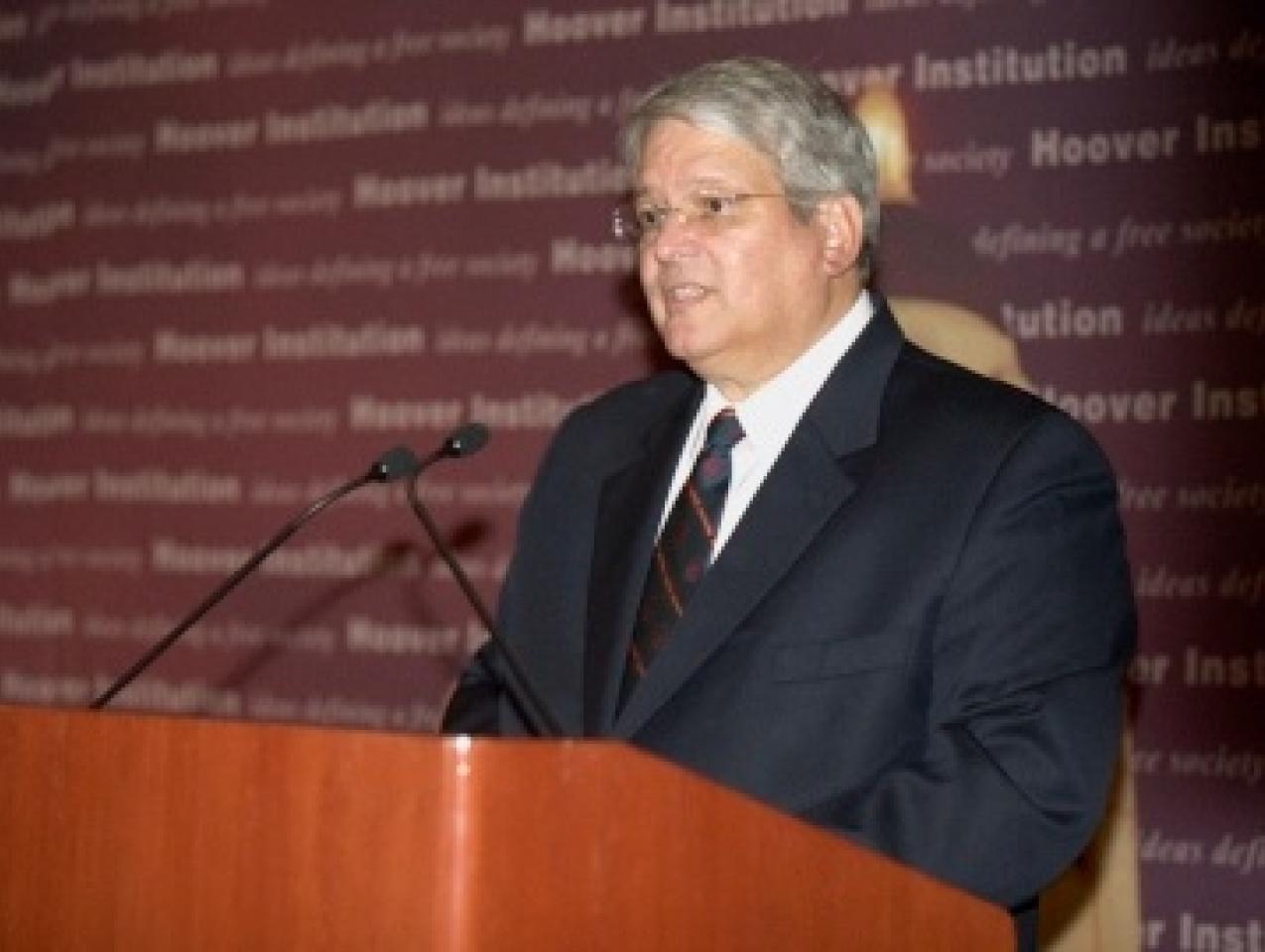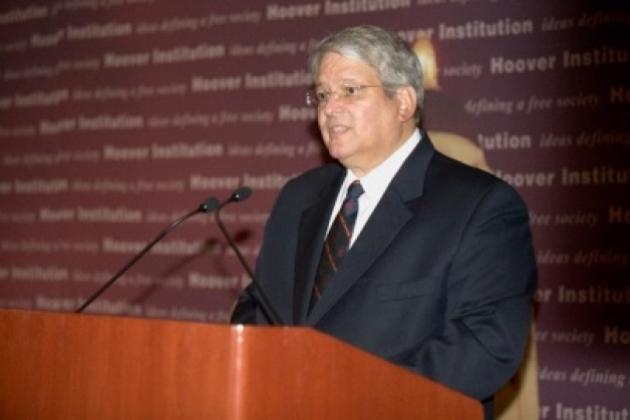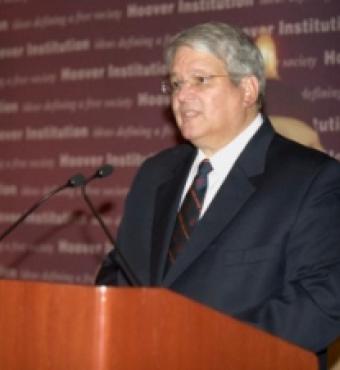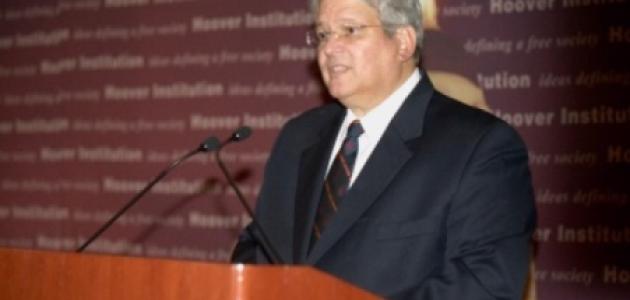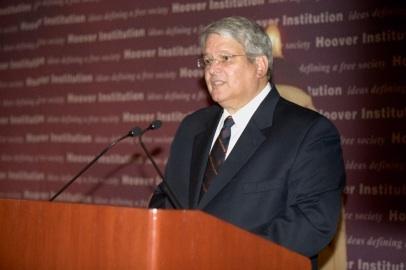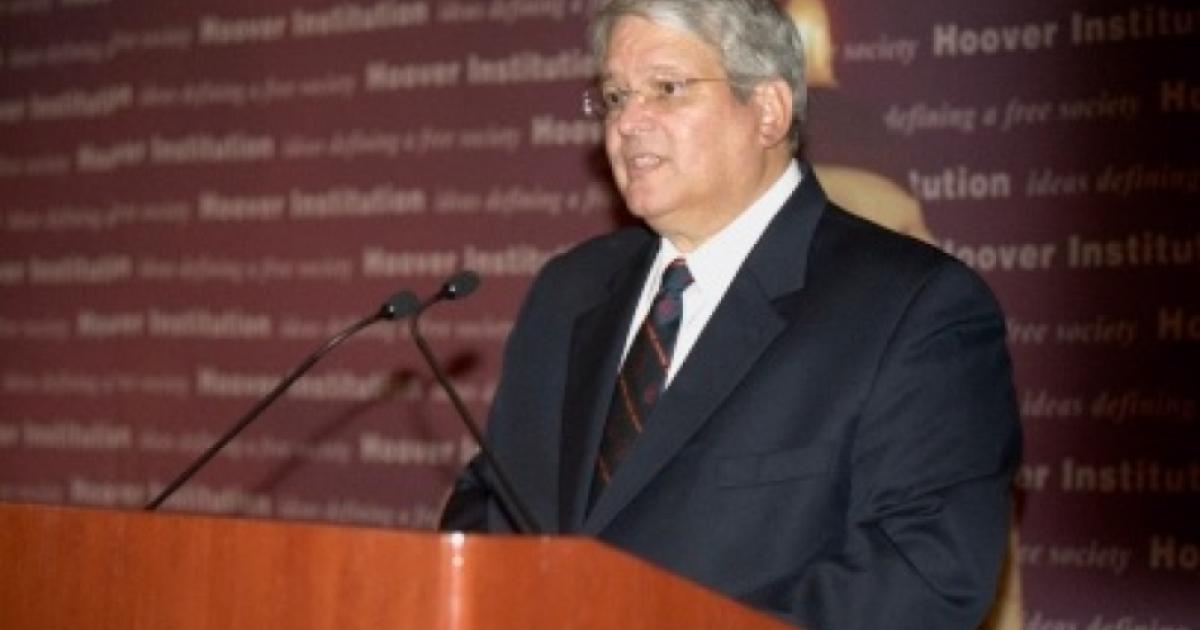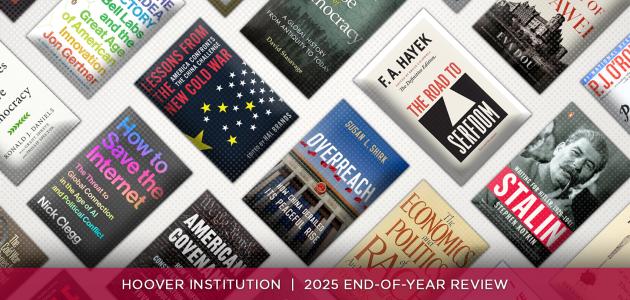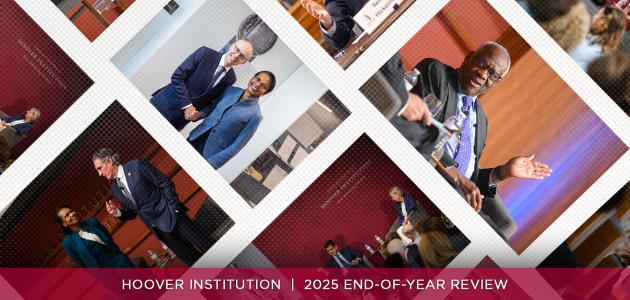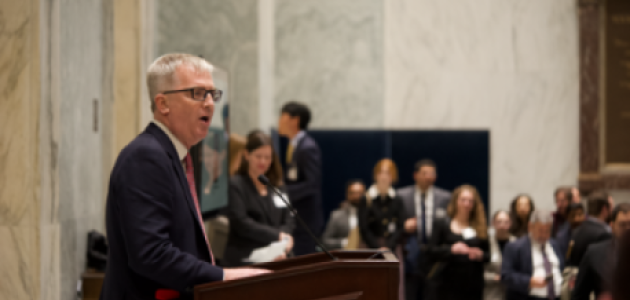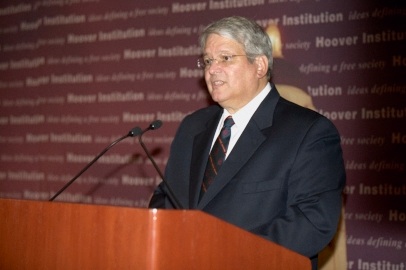
“Ideas have consequences,” said John Raisian, the Tad and Dianne Taube Director at the Hoover Institution, at the Hoover Institution’s Board of Overseers’ annual summer meeting during July 14 and 15.
“Hoover’s distinctive mission has been to generate the ideas that can move the public policy conversation and ultimately policy itself,” said Raisian. From among the many contributions Hoover fellows have made, Raisian cited the all-volunteer military, the intellectual framework of the Reagan presidency, the flat tax, the Taylor rule, choice and accountability in education, and influential thinking on affirmative action and race, conduct of modern warfare, use of preventive force, and America’s political culture wars.
Raisian said the Institution would continue to prepare for when a particular policy’s moment comes. He noted, too, the continued collaboration of Hoover fellows on task forces and working groups in addressing issues, which is proving to be successful.
A highlight of the meeting was George P. Shultz, the Thomas W. and Susan B. Ford Distinguished Fellow at the Hoover Institution, speaking about his career. Drawing on his recent book Ideas and Action (Free to Choose Press, 2010), Shultz discussed what he has learned from his roles as a leader in academia, business, and government. He noted that his life has been an “interplay between the world of ideas and the world of action.”
A preview of the PBS documentary featuring Shultz, “Turmoil and Triumph: The George Shultz Years” was hosted and commented on by Hoover research fellow Charles Hill, a professor at Yale University. Hill, a career minister in the U.S. Foreign Service, was executive aide to Shultz from 1985 to 1989 and served as special consultant on policy to the secretary-general of the United Nations from 1992 to 1996.
Other speakers at the July board meeting discussed a variety of topics, including the Obama administration’s strategy in the Middle East, civic virtues, economic research, and the upcoming midterm elections.
Fouad Ajami, Hoover senior fellow, and Hill discussed U.S. foreign policy in “Obama’s Uncertain Trumpet: Strategy and Drift in the Greater Middle East.” Hill offered a critical view of the U.S. National Security Strategy released by the White House in May of this year, which he views as an emergent Obama doctrine. Hill noted that it marks a change in the United States’ approach to the world, thus implying that past efforts have been wrong. “The Obama doctrine is at odds with the United States over the generations,” Hill said. Ajami addressed U.S.-Iran relations and views of the United States by other countries, which he noted have deteriorated during the Obama administration.
The need to cultivate civic virtues among America’s youth was discussed by William Damon, senior fellow at the Hoover Institution, the director of the Stanford Center on Adolescence, and a professor of education at Stanford University. In his presentation, titled “Our Civic Virtues Gap: How We Are Leaving Young Americans Unprepared for Citizenship in a Free Society,” Damon noted that a survey conducted among twelve- to twenty-two-year-olds showed only one in five seeing themselves as having a clear purpose in their lives. Of that 20 percent, only 1 percent cited political and civic leadership as providing them with purpose. (Family, work and faith were the most commonly cited.) “Virtues we believe in are important to live by,” said Damon.
In “What the Hoover Working Group on Economics Policy Is Working On” John Taylor, the George P. Shultz Senior Fellow in Economics at the Hoover Institution and the Mary and Robert Raymond Professor of Economics at Stanford University, provided an overview of one of the Hoover’s working group. Formed in 2007, the Hoover Working Group on Economics Policy researches, informs, and shapes economic policy, both domestically and internationally. Members write op-eds, articles, and books; provide congressional testimony; and are interviewed by news media about their findings. Current topics that are being delved into include
- The causes of the financial crisis and its impact on the economy
- Estimating the impact of discretionary fiscal stimulus packages
- How to end government bailouts and resolve large complex financial institutions?
- Extraordinary monetary actions and how to exit from them
- The sovereign debt crisis and large unfunded liabilities
- How to deal with Fannie and Freddie going forward
The midterm elections were discussed in a joint presentation by David Brady, deputy director and the Davies Family Senior Fellow at the Hoover Institution, and Douglas Rivers, senior fellow at the Hoover Institution and a professor of political science at Stanford University, titled “The 2010 Elections: Issues and Groups Driving the Results.” Although the Republicans stand to gain 28 or more seats in the upcoming elections, Brady cautioned that the track records of Congresses following such sweeps by the Republican Party, in 1946 and in 1994, have not been favorable. Rivers reviewed other issues relevant to the elections, including polls that showed a decline in the public’s view of President Obama.
Michael Barone, author and journalist, offered before-dinner remarks at the dinner on July 14. In his remarks, titled “National Politics and Our Presidents,” Barone discussed the growth and expansion of progressive politics in American society from early in the twentieth century to today. He warned that the goal of progressives is to inculcate dependence, which is at odds with the goals of the founders of the United States, who wished to promote independence.
Barone, coauthor of The Almanac of American Politics, is a senior political analyst for the Washington Examiner and a resident fellow at the American Enterprise Institute. He is also a Fox News Channel contributor.







